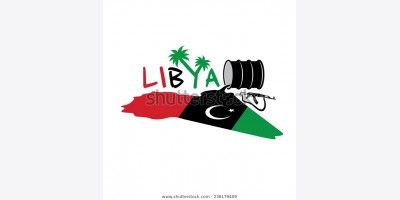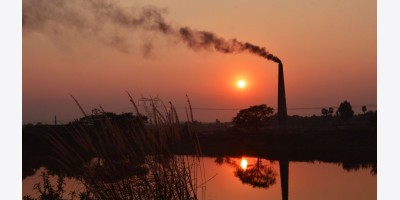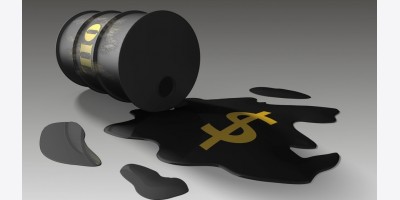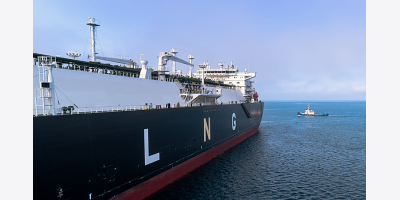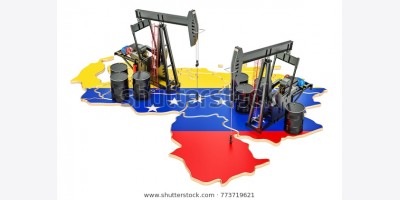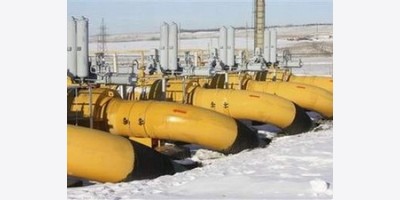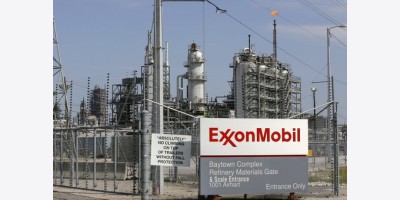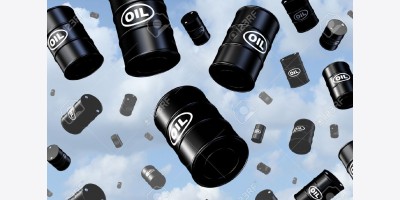Nexen’s Buzzard temporarily restarted, demobilization of rig ongoing
The UK’s Buzzard oil field in the North Sea temporarily restarted production late Monday, operator Nexen said in a statement Tuesday, before being shut down again to allow for the demobilization of a drilling rig.
“Export of oil from Buzzard was achieved at approximately 21.30 hours on Monday 25 August,” a spokesman for Nexen in the statement. “As planned and in accordance with our safety procedures, production has been shut down to allow for demobilization of the G3 drilling rig. The demobilization is being carried out during the calm weather window which is forecast for today (26th August, 2014) and tomorrow.”
The company didn’t comment on when production would restart on a permanent footing, but traders have previously said there would be 25 days of planned maintenance starting late July, which would imply a restart is imminent. The Buzzard field maintenance started on July 28, according to Nexen.
This was planned to coincide with the full system shutdown of the Forties Pipeline for 14 days from August 1, for the installation of a subsea isolation valve into the Forties Main Oil pipelines at Forties Charlie.
The Buzzard field has a nameplate capacity of 220,000 b/d. It is typically the largest contributor to Forties Blend, which is one of the four grades included in the Dated Brent benchmark, and its maintenance has sharply reduced the overall volume of Forties production. Forties Blend unstabilized crude output is expected to average 156,600 b/d in August, from 374,000 b/d in July, according to BP.
Kurdistan government reviewing plans for new oil company
The semi-autonomous Kurdistan Regional Government (KRG) will review plans for the establishment of a new national oil company to be submitted before the Kurdish parliament, the KRG said in statement Monday.
The plans were announced at a meeting Monday between the Kurdistan Region Oil and Gas Council and the Kurdish parliament’s Committee of Industry and Natural Resources.
The KRG announced last September plans to establish a new national oil company to explore and develop its oil and gas resources, moving the region a step closer to independence from Baghdad.
It did not provide any details on the timeline for parliamentary approval. Under the proposal, the new entity would account for just 3% of the region’s total oil revenues, with international oil companies still producing the majority. The ministry has also proposed to create a monetary fund to manage oil revenues, something first proposed in 2011.
The federal government in Baghdad has struggled to move ahead with its own legislation to re-establish the Iraq National Oil Company (INOC), which was merged with Iraq’s oil ministry in 1987. Since then, the oil ministry has been both the operator of Iraq’s oil sector and its regulator. Proposals to create a new oil company have been before parliament since 2007, but have not been passed.
Russia Tatneft sees no immediate impact of sanctions on its upstream
Russia’s Tatneft does not expect the recent ban on exports of EU and US technology and equipment to Russia to have any immediate impact on its upstream operations, which mainly include production from mature fields, or on its project to produce highly viscous oil, a Tatneft official said Tuesday.
The US and the EU introduced a ban on supplies of equipment and technologies used for Arctic, shale oil and deepwater upstream operations to Russia in don’t see any immediate impact,” the Tatneft official said at the company’s second-quarter conference call, adding that its exposure to export equipment is insignificant. “Most equipment for current operations comes from local sources, we don’t use third-party [domestic] or international contractors,” he said.
At the same time Tatneft will continue to monitor the situation, he said. Tatneft produced an average 188,200 b/d of crude in 2013, a marginal increase from 184,700 b/d in 2012. The company’s crude production has been roughly stable at least since 2008 despite operations at mature fields in Russia’s Republic of Tatarstan. The stability was achieved thanks to wide use of oil recovery technologies.
Tatneft has also been producing highly viscous oil at its Ashalchinskoye project in Tatarstan. In 2013, production reached 145,600 mt, while the target for this year is 195,000 mt. Output is expected to ramp up to 631,000 mt in 2016, according to Tatneft data.
Libya oil production reaches 630,000 b/d
Libya’s crude production has continued to rise, reaching 630,000 b/d late Monday, a spokesman for state-owned National Oil Corp. said. The country’s oil production has been ramping up since July, with all its export terminals, including the eastern ports of Es Sider and Ras Lanuf, back under state control and operational.
However, not all oil fields are back in operation. “The Waha oil field is not operational yet, and there is no information about restarting it,” NOC spokesman Mohamed al-Harari said Monday. “We have enough crude at the tank farms before we start operating all the fields at the same time.”
The 160,000 b/d field is operated by Waha Oil Company, a joint venture of NOC with three US firms — ConocoPhillips, Marathon Oil and Hess Corporation. Production is normally transported to the 340,000 b/d Es Sider and is expected to restart once storage space at the port is cleared.
Germany’s Wintershall, another major foreign oil producer, said last week it was ready to resume production at its onshore fields, but was waiting for approval from NOC. Wintershall operates the C96 and C97 blocks in the Sirte basin in southeastern Libya, and can produce up to 100,000 b/d.
The blocks have been shut in since August last year when anti-government protesters blockaded key export terminals. Wintershall’s production can now be pumped through Libya’s pipeline network to the ports, pending approval. Exports resumed from the nearby 220,000 b/d Ras Lanuf terminal earlier in August.
Total provisional Sep Urals exports up 468,000 mt on Aug at 7.914 mil mt
Overall loadings of Urals crude oil from the Baltic Sea ports of Primorsk and Ust-Luga and from the Black Sea port of Novorossiisk are set to climb by a combined 468,000 mt (3,383,640 barrels) in September, according to a provisional full-month loading schedule seen by Platts Tuesday.
Total export volumes are set to come in at 7.914 million mt (57,218,220 barrels) with average daily loadings of 1,907,274 b/d out of the three ports, up by 170,675 b/d from August. The jump in exports comes after August’s provisional loading schedule was initially the shortest in more than two-and-a-half years, though several late-month injections into the Baltic Sea schedule pushed up final exports.
Exports are set to remain broadly unchanged on August out of the Baltic Sea port of Primorsk, sliding a marginal 5,000 mt to 3.5 million mt. The average daily loading rate is set to tick upwards by 26,044 b/d to 843,500 b/d, with September one loading day shorter than August.
The final, signed August Primorsk program was 3.305 million mt, though traders said that two additional cargoes were later injected into the third decade of the program. Loading schedules may be subject to change. Thirty-five cargoes of 100,000 mt each are set to load out of Primorsk in September.
Twenty-two cargoes of 100,000 mt each are currently scheduled to load out of nearby Ust-Luga, bringing the total expected export volume from the port to 2.2 million mt in September at an average daily loading rate of 530,200 b/d.
The final August schedule was 2 million mt, at with an average daily loading rate of 466,452 b/d. There are no free positions in either Baltic Sea loading program in September. A free position is a laycan within the program to which no crude oil has yet been assigned, resulting in a “hole.”
Free positions may subsequently be replaced with a cargo but are often left unfilled. Exports are also set to rise out of the Black Sea port of Novorossiisk, jumping 273,000 mt to 2.214 million mt. August’s export schedule was the shortest since at least January 2012 out of the Black Sea port, and September’s average daily loading rate is set to climb 80,883 b/d to 533,574 b/d.
By Ilya Arkhipov, Aliaksandr Kudrytski and Daryna Krasnolutska
Russian President Vladimir Putin said talks with his Ukrainian counterpart over separatist fighting that’s killed more than 2,000 people were “positive” as the parties began discussions for a political resolution.
“Russia, for its part, will do everything for this peace process,” Putin said today after meeting Ukrainian President Petro Poroshenko at a summit of the Customs Union trading bloc in Minsk that also included the leaders of Kazakhstan and Belarus and European Union foreign-policy chief Catherine Ashton. “In our opinion, it should start as soon as possible.”
Poroshenko said on Twitter after the talks that Russia, Belarus and Kazakhstan backed a Ukrainian peace strategy to stem battles between the army and pro-Russian insurgents who have sought to break off the Donetsk and Luhansk regions in the nation’s east. He didn’t elaborate on what the plan entailed and Putin didn’t mention it as he addressed reporters.
Poroshenko arrived in the Belarusian capital pledging to seek a peaceful resolution to five months of unrest that’s sparked the worst standoff between Russia and its former Cold War foes in two decades and unleashed waves of sanctions from both sides. Ukraine blames its neighbor for stoking the insurgency through supplies of manpower and weapons, an allegation Russian denies.
Aid Deliveries
Putin said today that no talks were held on conditions for a cease-fire in Ukraine because Russia isn’t a party to the conflict. Even so, Russia’s concerns “were heard” in Minsk and a working group will intensify efforts to stem the crisis, he said. The Russian leader said he sees an agreement on further deliveries of humanitarian supplies to Ukraine, which was angered by what it said was an unauthorized aid convoy consisting of hundreds of Russian trucks to Luhansk last week.
Ukraine and Russia are planning military consultations, Russia’s Interfax news service cited Poroshenko as saying.
Energy negotiations will also resume on Aug. 29, EU Commissioner Guenther Oettinger told reporters in Minsk, according to an e-mailed statement from the 28-member bloc. The meeting will include Russian Energy Minister Alexander Novak and will seek to arrange three-way talks with Ukraine later on, he said. Russia cut off natural gas supplies to its neighbor in June over unpaid bills, threatening energy transit to Europe.
Yields Rise
The yield on dollar-denominated Ukrainian government bonds due July 2017 rose 42 basis points yesterday to 10.66 percent, a two-week high. The hryvnia depreciated as much as 1.1 percent before closing unchanged at 13.55 per dollar.
Russia’s Micex (INDEXCF) stock index fell 0.8 percent, while the ruble was down 0.1 percent against a target euro-dollar basket. Russia’s Finance Ministry canceled a ruble-bond auction scheduled for today, the sixth in a row, citing “unfavorable market conditions.”
Meanwhile, fighting in eastern Ukraine raged on. The government said yesterday that 200 rebels and 12 Ukrainian servicemen had died in 24 hours. Andriy Lysenko, a military spokesman, accused Russia of attempting to “create a new front” in the fighting close to the Sea of Azov in southern Donetsk.
Ukraine released video footage of Russian servicemen it said it captured when an armored column crossed the frontier yesterday. The Defense Ministry said on Facebook that part of the column is still in Ukraine, with members of the group shelling government forces from three local villages.
Russian Paratroopers
Putin’s spokesman, Dmitry Peskov, and Major General Igor Konashenkov, a spokesman for the Russian Defense Ministry, weren’t available outside office hours.
The video showed men in military fatigues that Ukraine said were Russian paratroopers. One, identified as Sergey Smirnov, said they were ordered to paint out Russian markings on their vehicles and paint on white circles instead before being sent to Ukraine without documents and mobile phones.
“I didn’t even see where we crossed the border,” said another man, identified as Ivan Michalkov.
Russia’s state-run RIA Novosti news service cited an unidentified Defense Ministry official as saying that troops who were patrolling the border crossed into Ukraine accidentally and didn’t resist when detained.
Putin said Ukrainian servicemen had also strayed at times into Russian territory and, like on those occasions, he hoped this latest incident wouldn’t be “a problem.”
U.S. National Security Adviser Susan Rice said on Twitter that repeated Russian military incursions into Ukraine are “dangerous and inflammatory.”
By Laurel Brubaker Calkins
The Kurdistan Regional Government can bring $100 million of crude ashore in Texas after a U.S. judge threw out a court order that would have required federal agents to seize and hold the cargo for the Iraqi Oil Ministry until a court there decided which government owns it.
U.S. District Judge Gray Miller in Houston said he lacked authority under federal laws governing property stolen at sea to decide the dispute. Both Iraq’s central government and the regional government claim control of 1 million barrels of Kurdish crude waiting in a tanker moored in international waters off the Texas coast for almost a month.
Miller ruled yesterday that Iraq’s national oil ministry lost control of the crude when the Kurdish government pumped it without authorization from oilfields in the northern part of the country. Iraq failed to convince Miller that the oil was misappropriated when it was loaded into a tanker in the Mediterranean Sea after being pumped across Turkey in an Iraq-owned pipeline.
“Kurdistan’s unauthorized export of oil over land -– and later overseas –- may violate Iraqi law, but it does not violate U.S. maritime law,” Miller said.
Miller threw out a seizure order issued July 28 by a Houston magistrate judge, who questioned U.S. jurisdiction in the matter while agreeing to store the cargo onshore at Iraq’s expense as the debate continued in that nation’s Supreme Court.
Reparations, Royalties
Kurdistan officials have been fighting the national government over billions of dollars in unpaid war reparations and royalties from oilfields owed by the central government. Attorneys for Iraq’s Oil Ministry had said the only way they could force the Kurdistan Regional Government to appear before the Iraq Supreme Court was to seize the disputed cargo in the U.S.
Phillip Dye, a Houston attorney for the Iraqi Oil Ministry, didn’t immediately respond to phone and e-mail messages after regular business hours yesterday seeking comment on the ruling.
The case is Ministry of Oil of the Republic of Iraq v. 1,032,212 Barrels of Crude Oil, 3:14-249, U.S. District Court, Southern District of Texas (Galveston).
By Mikael Holter
DNO ASA (DNO), the oil producer focused on northern Iraq, said a U.S. court ruling has opened a market for Kurdish crude and it could make its first independent export sales by the end of the year at international prices.
A U.S. district judge in Houston yesterday ruled that the semi-autonomous Kurdistan Regional Government can take 1 million barrels of crude ashore in Texas even though Iraq’s central government claims ownership of it. That’s “good news” for DNO, which has been cleared by the KRG to export oil independently, Executive Chairman Bijan Mossavar-Rahmani said.
“That opens up a market, and we’ll walk into that market as well,” he said today in Stavanger, on Norway’s west coast. “It’s not just a legal matter or political matter, it’s also a matter of having refineries take this oil, run it through their refineries and see how it works.”
DNO, the first foreign explorer to drill in Iraq after the U.S.-led invasion in 2003, has been caught in a dispute between the KRG and Baghdad’s central government over the proceeds of oil exports. After pumping oil from its Tawke field in Kurdistan through a new pipeline to Turkey’s Ceyhan port since the start of the year, DNO has now been cleared by regional authorities to export its own oil as its share of production.
The Kurds, who are working to quadruple the capacity of their export pipeline, have defied the central government in recent weeks by shipping seven cargoes of oil overseas.
Brent Discount
The U.S. court decision is probably not the last step of the legal struggle, DNO’s Mossavar-Rahmani said. Still, he’d be “disappointed” if the company didn’t make its first export sale by the end of the year, he said, adding that it’s too early to say whether that would be to a U.S. buyer.
While DNO’s heavy oil will be sold at a discount to Brent crude, a benchmark, the company expects it to be sold at international prices, which would represent a significant premium to the $50 to $60 a barrel it’s getting from sales to the local Kurdish market, Mossavar-Rahmani said.
Brent for October settlement traded 33 cents higher at $102.98 a barrel on the London-based ICE Futures Europe exchange as of 4:10 p.m. local time.
“It’ll be in line with what the Kurdish government is now getting,” he said. “I understand that those prices are in line with world prices.”
By Mikael Holter
Norway, western Europe’s biggest oil producer, will probably cut its long-term forecast for crude production as companies reduce spending to counter rising costs and improve shareholder returns.
As investments in Norway’s oil industry fall after a peak this year, production beyond 2015 will be lower than expected, according to Bente Nyland, head of the Norwegian Petroleum
Directorate. The estimate cuts are expected to be reflected in the NPD’s annual prognosis scheduled to be published in January.
“There might be a certain decrease,” she said in an interview in Stavanger today. “It’s capital discipline, it’s costs.”
Norway is struggling to sustain oil production that’s more than halved since a peak in 2000 as producers including Statoil ASA (STL) scale back spending plans. The NPD in its latest prognosis in January predicted oil production would rise this year and remain stable through 2018. Still, the forecasts were lower than those made at the beginning of 2013.
Oil companies operating in Norway could reduce investments by more than 20 percent next year as they fight costs that have cut margins amid stagnating oil prices, Statistics Norway said in June. Statoil, which operates more than 70 percent of the country’s offshore platforms, in February said it will cut planned investments during the next three years by 8 percent at the same time as abandoning earlier goals for production growth.
Government Warning
“There’s a large gap between what’s profitable for society and what’s profitable for companies,” Nyland said today. “That might be the biggest obstacle.”
Norway’s government has warned companies not to let lower spending impact planned projects and particularly time-critical measures aimed at increasing recovery from existing fields. Petroleum and Energy Minister Tord Lien today reiterated that warning in a speech at the ONS conference in Stavanger, pledging in return to keep framework conditions stable and predictable.
“Producing easy oil only is not in accordance with good resource management and the license to operate,” the minister said. “Cost cutting and capital discipline are important rules in order to produce more resources. However, it should not lead to leaving economic resources in the ground.”
Oil companies have complained that a tax increase last year by Norway’s previous government has made projects less profitable. Together with a move by Parliament this year to force operators to power four offshore fields from land, the tax increase has introduced more political risk in Norway, the Norwegian Oil and Gas Association, a lobby group, has said.
Stavanger, Norway (Platts)
Companies operating on the Norwegian continental shelf need to boost production to unlock its full potential and should not leave resources in the ground to save costs, Norway's oil and energy minister Tord Lien said Tuesday.
"Taking full benefit of the huge economic potential in our remaining resources requires active work and continuous investments by the operators on the NCS," Lien said at an ONS (Offshore Northern Seas) conference.
"Producing easy oil only is not in accordance with good resource management and the licence to operate," he said in Stavanger.
Tensions have been bubbling with the oil and gas industry since the last government introduced a more burdensome tax regime last year. The new government, seen as more pro-oil, has refused to repeal the measures.
At the same time, companies have been announcing delays to major developments including the final investment decision on the $15 billion Barents Sea Johan Castberg field, citing rising costs including the new taxes.
"Cost cutting and capital discipline are important tools in order to produce more resources. However, it should not lead to leaving economic resources in the ground," Lien said.
"Fewer projects might produce immediate ripple effects through the supply chain. This may result in a loss of capacity and competence which will again will be needed in the future."
Lien said the industry knew it had an obligation to bring more production into line. "The industry knows it has an obligation as part of the social contract to make sure that the full potential of the resources becomes realized."
"We have seen a happy increase in oil prices... but also the costs per barrel has been increased a lot and therefore cuts are needed," Lien said.
"But cost cuts are needed to make sure more of the potential on the shelf is realized. If cost cutting leads to economically viable resources left in the ground, that is just not in compliance with the social contract to have a licence to operate on the NCS."
MORE PRODUCTION PLEASE: IEA
On Monday, IEA executive director Maria van der Hoeven, also at the conference, said Norway -- one of the world's top 10 oil exporters and the second biggest gas exporter to Europe after Russia -- should produce more, especially gas, to help wean Europe off its dependence on Russia.
"There are no immediate means to replace Russian supplies...in the short run," she said. "And while Norway continues to play a very important role as a reliable supplier of gas to Europe...production levels fell by 6 Bcm in 2013. So, action is needed if Norway is to offset further declines."
A week ago, the Norwegian Oil and Gas Association said the NCS had been placed on a figurative "watch list" by the industry, adding that trust had been shaken by political decisions made without consultation, including the tax change.
"We need political leadership and wisdom which restores confidence after decisions and resolutions by politicians have weakened the world's trust in the NCS," the industry group's director general Gro Braekken said.
The association also said future investment decisions on the shelf might be threatened if measures to restore confidence were not implemented.
In March, Statoil CEO Helge Lund said the group, responsible for 70% of activities on the shelf, re-emphasized its focus on tackling rising costs.
His remarks come after the Norwegian 67% state-controlled group the previous month said it was pushing back 2020 production target goals of 2.5 million boe/d by 3-4 years while prioritizing a war on cost control.
Singapore (Platts)--26Aug2014/721 am EDT/1121 GMT
Japan's LPG stocks rose for the third-straight month in July, up 4.03% versus June to 1.907 million mt on higher imports, even as demand recovered, Japan LPGas Association data showed Tuesday.
Imports at the end of July jumped 26.7% month on month to 958,000 mt, rebounding from a downtrend seen since March, the data showed.
Import terminal running stocks, or supplies that refiners or importers can draw on, increased by 33% month on month to 310,000 mt in July, after rising 55.3% to 233,000 mt in June, the data showed.
The rise in overall inventories was led by propane, which climbed 11.3% month on month to 1.218 million mt in July, while butane stocks continued to fall, down 7.3% to 689,000 mt, according to the data. However, total LPG stocks were down 5.2% year on year.
Total LPG demand in July surged 20.1% month on month to 1.149 million mt, recovering after sliding 17% in June to 957,000 mt. This was led by a rise in electricity demand to 118,000 mt in July, as cooler weather despite the onset of summer stoked greater use of hot water heaters though demand for air conditioners was weak.
The rise in imports came despite concerns over costly freight rates for the Persian Gulf-to-Japan route, which hit record peaks around $140/mt during late July, making it difficult to move cargoes from the Middle East on an FOB basis.
But traders said this could have been filled by cargoes from the Atlantic Basin.
In June, the price of propane cargoes for delivery along the major Singapore-Japan route over July was assessed at firm levels between $882/mt and $941/mt, Platts data show. Prices have since weakened and propane was assessed Monday at $826/mt for H2 September-delivery cargoes.
Government-mandated stocks at the end of July, which comprise a large portion of privately held LPG stocks, dipped 0.27% to month on month to 1.484 million mt, the data showed.
Dubai (Platts)
Libya's crude production has continued to rise, reaching 630,000 b/d late Monday, a spokesman for state-owned National Oil Corp said.
The country's oil production has been ramping up since July, with all its export terminals, including the eastern ports of Es Sider and Ras Lanuf, back under state control and operational.
However, not all oil fields are back in operation.
"The Waha oil field is not operational yet, and there is no information about restarting it," NOC spokesman Mohamed al-Harari said Monday.
"We have enough crude at the tank farms before we start operating all the fields at the same time."
The 160,000 b/d field is operated by Waha Oil Company, a joint venture of NOC with three US firms -- ConocoPhillips, Marathon Oil and Hess Corporation.
Production is normally transported to the 340,000 b/d Es Sider and is expected to restart once storage space at the port is cleared.
Germany's Wintershall, another major foreign oil producer, said last week it was ready to resume production at its onshore fields, but was waiting for approval from NOC.
Wintershall operates the C96 and C97 blocks in the Sirte basin in southeastern Libya, and can produce up to 100,000 b/d. The blocks have been shut in since August last year when anti-government protesters blockaded key export terminals. Wintershall's production can now be pumped through Libya's pipeline network to the ports, pending approval.
Exports resumed from the nearby 220,000 b/d Ras Lanuf terminal earlier in August.
Houston (Platts)
Dakota Gold Transfer announced plans Tuesday to build a crude transload facility in Mountrail, North Dakota, the most recent infrastructure project in the ever-growing Bakken Shale play.
The terminal, expected to come online in the second half of 2015, will have an initial storage capacity of 300,000 barrels, but will be expanded to 600,000 barrels, the company said. The facility will be able to handle crude shipments via rail and pipe.
Crude-by-rail throughput capacity will be 70,000 b/d, served by Canadian Pacific Railway.
"The terminal's design includes two loop tracks with storage for one to two additional trains on the private rail spur, a covered loading barn, a 14-arm system capable of loading a unit train in approximately 14 hours, 15 truck unloading bays and three 103,000-barrel storage tanks," the company said.
North Dakota posted a record 1.093 million b/d of oil production in June, with 1.048 million b/d coming from Bakken and Three Forks fields, according to the state Department of Mineral Resources.
Wood Group Kenny lands $2 million worth of Brazilian contracts.
HOUSTON, Aug. 26 (UPI) -- Oil services company Wood Group Kenny said Tuesday it secured more than $2 million in contracts for work off the coast of Brazil from Petrobras.
Program director Hugues Corrignan said the company has a strong relationship with Brazilian energy company Petrobras, a relationship strengthened by new contracts.
"We are particularly pleased to be selected to support Petrobras in these challenging projects and have the opportunity to positively contribute to the introduction of innovative technologies in the Brazilian environment," he said in a statement.
Wood Group Kenny said it would help Petrobras and its partners develop heated pipeline technology for oil deposits trapped beneath a thick layer of submarine salt, dubbed pre-salt. The oil services company said the technology would be the first ever in a pre-salt environment.
The technology targets the Lapa field, located about 170 miles off the coast of Rio de Janeiro. Petrobras in December said the field holds 459 million barrels of oil equivalent in recoverable reserves.
Brazil ranks second behind Venezuela in proven oil reserves in South Americ
Van der Hoeven addresses "talked up" LNG role.
STAVANGER, Norway, Aug. 26 (UPI) -- Liquefied natural gas sent from North America to European markets likely won't make much of a regional difference, the director of the IEA said from Norway.
International delegates are gathered for an annual energy conference in Stavenger, Norway. The theme for the ONS conference, organizers said, is change.
Maria van der Hoeven, executive director of the International Energy Agency, said the glut of natural gas from North American shale is changing the dynamics of a global energy sector where demand centers are pivoting toward Asian economies.
Van der Hoeven said time will tell how much of an impact exports in the form of liquefied natural gas will have on the global marketplace. For the European market, more LNG from North America is not the panacea "talked up by some" in Washington, she said.
"As I'm sure many of you in this room already know, a few tens of [billion cubic feet] of LNG will not make much difference, given that OECD-Europe production continues to fall by similar quantities," she said during her Monday address.
Measures passed in the U.S. House of Representatives that would facilitate LNG exports were touted by supporters as a means to boost European energy security in an era when Russia's role in the region's gas market is a growing cause for concern.
"Continued strong gas demand in Asia and competition for LNG mean that new volumes will be hard to come by in the case of supply disruption," van der Hoeven said.
Offshore field accounts for 35 percent of Iran's gas output.
TEHRAN, Aug. 26 (UPI) -- Sanctions targeting the Iranian energy sector have curtailed development of the South Pars natural gas field, the Iranian energy minister said Tuesday.
Iranian Energy Minister Bijan Zangeneh said sanctions imposed in response to Iran's controversial nuclear research program means the Iranian economy is using more fuel oil than it would if South Pars were fully developed.
"Unfair sanctions against Iran have delayed the implementation of projects for gas production from the giant South Pars field," he said in a statement.
Iran in mid August said natural gas production during the first four months of the Iranian year, which begins March 21, was up 30 percent year-on-year.
South Pars accounts for about 35 percent of the total volume of gas produced from Iran. In the past, the government has held out the field's output as an option for Europe.
Zanganeh said in May his government was "always willing" to play a role in the European energy market, though European governments in the past have shied away from Iran because of lingering economic sanctions.
(AGI) Baghdad, Aug 26 - The dispute between Baghdad and the Kurdistan Regional Government (KRG) over the export of Kurdish oil has led to losses of over 16 billion dollars for the federal government, wrote Iraqi Oil Ministry spokesman Asim Jihad on Tuesday. Iraq, the statement said, lost between 300 and 400 thousand barrels of oil per day in March because of terrorist attacks on the pipeline between Kirkuk and the Turkish port of Ceyhan. Baghdad was also forced to give up the income from the export of about 400,000 barrels of crude oil sold independently by the Kurdish authorities since the start of the year. (AGI) . .
Gas system in Ukraine in "normal mode."
BRATISLAVA, Slovakia, Aug. 26 (UPI) -- Russian media reports Tuesday it was told by a Slovakian energy company it won't play a role in management of Ukraine's gas transit system.
The Ukrainian government last week said testing began to send 70 million cubic feet per day from Slovakia to Ukraine through the joint work of transit companies Uktransgaz and Eustream, a Slovakian energy company.
An unnamed Eustream spokesman told Russian news agency Itar-Tass it wouldn't play a management role in Ukraine.
"No one has asked Eustream to join the joint venture to manage Ukraine's gas transportation system," the spokesman said Tuesday. "Our company has not received such proposals."
The comments come as delegates from the European Union, Russia and Ukraine meet in Minsk with the goal of resolving a crisis brewing at least since November, when the government in Kiev started pivoting away from the Kremlin and toward the EU.
Russia meets about a quarter of Europe's gas needs, though most of the gas runs through the Soviet-era pipeline network in Ukraine. Lingering security and economic concerns in Ukraine have exposed risks to European energy.
In its own statement, the Slovakian energy company said the gas flow from Ukraine "is in normal mode."
Norway could draw billions of dollars from untapped reserves.
HOUSTON, Aug. 26 (UPI) -- The Norwegian government could pull in $84 billion in taxes from the natural reserves yet to be developed in its territory, analysis from Wood Mackenzie finds.
Energy consulting group Wood Mackenzie said Tuesday it believes there are 10 billion barrels of oil equivalent discovered, but yet to be developed, in Norway. About 60 percent of that could be developed commercially, resulting in $84 billion in taxes and $22 billion in profits for the companies involved.
Norway has more oil reserves than any other European country and is one of the largest suppliers of natural gas to the region.
Wood Mackenzie analyst James Webb said "strict capital discipline" in Norway, however, means some large discoveries might not be developed.
"Despite the obvious obstacles for development, the pipeline for future projects in Norway is strong," he said in a statement Tuesday.
The National Petroleum Directorate, a government regulator, said preliminary production figures for July show an average daily production of 1.93 million barrels of oil, natural gas liquids and condensate, about 8 percent more than was produced in June.
Around 80 percent of that production volume was crude oil. The NPD said oil production was 2 percent higher than what it expected for July, but 3.5 percent lower year-on-year.
Changes will be "profound," analysis finds.
WASHINGTON, Aug. 26 (UPI) -- Mexican energy sector reforms are expected to yield growth in long-term production trends, analysis from the U.S. Energy Department said.
Mexican lawmakers are putting the final touches on plans embraced by President Enrique Peña Nieto aimed at drawing international energy companies into the nation's energy sector. The move opens Mexico up to private investors after more than 70 years under a monopoly controlled by state-run Petroleos Mexicanos, or Pemex.
The Energy Information Administration, the statistical arm of the U.S. Energy Department, said those reforms are expected to translate into production gains for Mexico.
"The changes in EIA's assessment of Mexico's liquids production profile are profound," a briefing published Monday said.
Before reforms, EIA said it expected production from Mexico to decline from 3 million barrels per day in 2010 to 1.8 million bpd by 2025. With the reforms, Mexican production holds steady at around 2.9 million bpd through 2020.
Peña Nieto set a goal of producing 3.5 million barrels of oil per day by 2025, which would be a 40 percent increase from 2013 levels.
The oil sector accounted for 13 percent of the country's export earnings last year. The country, a top 10 oil producer, had an estimated 10 billion barrels of proven oil reserves as of 2013.





